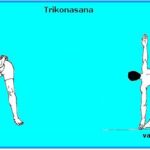Beating Stress With Nutrition
Numerous of us, stress and food go hand-in-hand. Food can give us the sentiments of energy, control, and satisfaction that we require in stressful situations. It’s no unexpected that when our stress levels go up our resistance to ‘comfort’ foods goes down.
This isn’t generally a bad thing – our favorite foods really can reduce our stress levels. But moderation is key.
Giving your body the nutrition it required is a positive step you can take daily toward combating stress. With the correct nutrition, you are better arranged to face the challenges of the day.
Adrenaline is created during times of intense stress. That gives you a burst of vitality, but your blood-sugar level drops after the emergency is passed. Sustaining food is expected to renew it. Certain foods grow the physical stress on your body by making digestion more troublesome, or by denying the brain essential nutrients. Stress itself can cause bad digestion. Drinks can have just as great an impact – caffeine and alcohol both put a considerable strain on the body.
With a sensible diet, it’s conceivable to decrease the effects of stress, avoid some common issues, and protect your health.
Avoiding Common Problems
- Indigestion. This can consequence from eating in the middle of a stressful situation, as the digestive system is not relaxed. It also can be due to eat on the run, so always sit down to eat and eat more gradually, chewing food properly. You will then truly taste and enjoy your meals and snacks.
- Bloating. As we all know, bloating is unpleasant, and stressful in itself. It could be triggered by wheat products (bread, biscuits, pasta, bread, and cakes) and dairy products (milk, cheese, cream, and butter), so try cutting out each food group for a couple of weeks to see if the issue eases.
- Caffeine dependency. Depending on caffeine to keep you going is a bad thought. It raises stress hormones and can lead to sleeping disorder and dehydration, affecting your body’s ability to handle stress. There are many delicious caffeine-free alternatives, for example, herb teas.
- Hangovers. Nobody functions well with a hangover, so drinking heavily will lead to trouble the following day. This does not mean that you need to avoid alcohol totally, just be aware of its effects, and resist utilizing it routinely as a coping technique.
- Cravings. These often hit during the ‘post-lunch dip’, and growth at hormonal times and under stress. To control your cravings, include small portions of the craved item into your daily diet, rather than trying to resist completely. Or distract yourself by getting required in something else, and the craving may pass. Keep healthy food nearby, and don’t hold up too long between snacks.








Facebook Comments